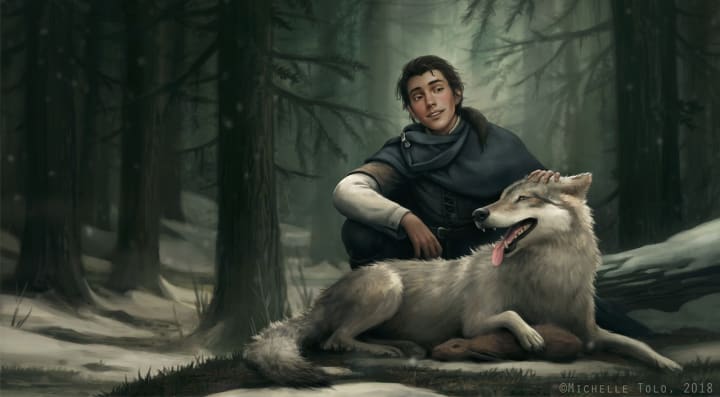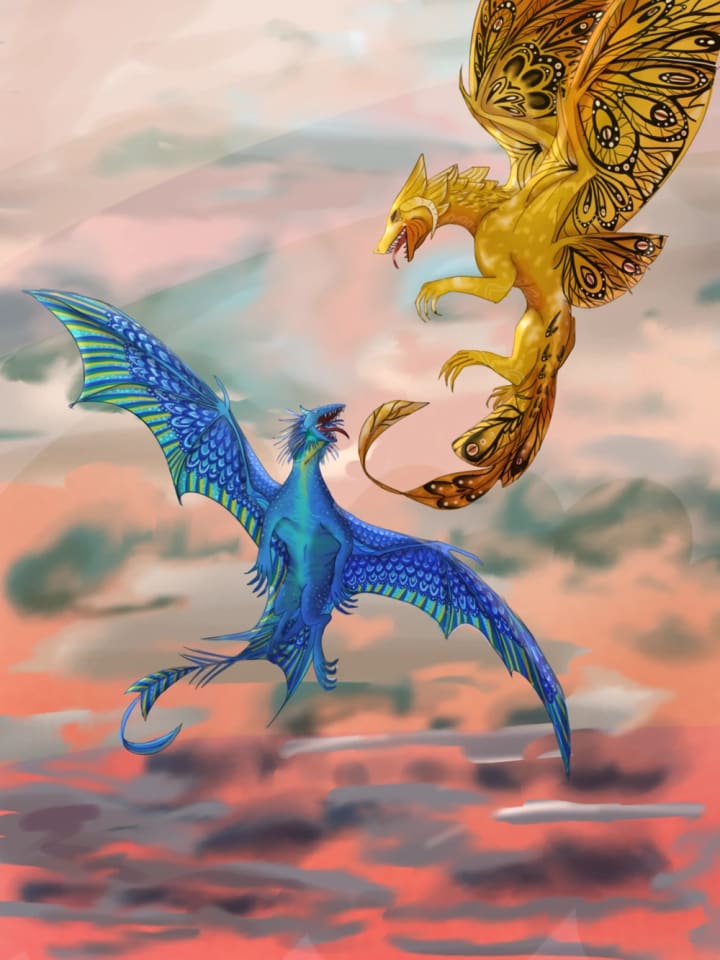Should You Read the "The Realm of the Elderlings" by Robin Hobb?
Ever wondered if you should read Robin Hobb? Well, you most definitely should.

Robin Hobb is an American author who writes stories in the science fiction and fantasy genre. Hobb also writes under the name of Megan Lindholm. The Times has dubbed Hobb as "one of the great modern fantasy writers" for her stories set in "The Realm of the Elderlings". A total of 16 books, which are organized into 5 series, have been set in this realm. It is one of the most expansive and detailed worlds that I have ever come across. Understandably, starting a 16-book series can be quite intimidating. So, in this blog, I will delve into some of the highlights of this fabulous world that should convince you to begin your Hobb journey.
The first series in this realm - "The Farseer Trilogy" - is set in a part of the world called the Six Duchies where we follow FitzChivalry Farseer, who is a royal bastard, from when he is about six years old till he becomes a teenager. The story begins when Fitz is brought to and left at the Buckkeep Castle (the royal palace) by his maternal grandfather. In the castle, he is raised by Burrich, the stablemaster of the castle, and later, when the King notices him, Fitz begins his training as the royal assassin under the tutelage of Lord Chade. Through Fitz, we meet a wide range of characters - some of whom I came to immensely adore and some I hated with all my guts. The next series is "The Liveship Traders Trilogy", where we get to see a completely different part of the world - Bingtown, Rain Wilds, Chalced, and Jamallia. We meet an entirely new set of characters, majority of whom are sea-based traders, and hence, the stories are predominantly set on ships. We are also introduced to Liveships which are ships that come alive when three generations of a family die on the decks of the ship. The magic and intrigue surrounding these Liveships are the main pivots of this trilogy. We return to the characters of the Six Duchies and are reunited with Fitz, who is now in his middle thirties, in the third series - "The Tawny Man Trilogy" - and the fourth series takes us deep into the world of Rain Wilds (which is, in some sense, the place from where Liveships have originated) with "The Rain Wild Chronicles". The final series - "Fitz and the Fool Trilogy" - starts in the Six Duchies and not only navigates us through all the different parts of the realm that we have explored and loved so far but also takes us through new adventures in yet unexplored territories.
I have, intentionally, not attempted to explain the plot of the individual series for a couple of reasons. Firstly, the plots of the later series contain massive spoilers for the plots of the initial series. Secondly, almost every series is an amalgamation of multiple plot lines which are disclosed as and when the series progresses. And lastly, when a world has 16 books, there is a large overarching plot that can be recognized and understood only while reading the books, and no amount of "third-party" explanations will do justice to these plot revelations. The various plot lines of different series converge together to form a grand picture that can only be appreciated if you have journeyed through the world yourselves. Robin Hobb has also hidden easter eggs throughout her stories and it gives immense pleasure when you begin drawing connections between the different elements of the stories through these easter eggs.
Robin Hobb paints a very striking and vivid picture of the environment and settings of her characters and her scenes. It is never difficult to envision the atmosphere and the setting of a scene in the book. Whether the scene is set in the palace, in the mountains, or on the sea, the tone of the scene leaves no room for ambiguity. You can feel the warmth of the palace, the crispness of the mountains, and the dampness and salinity of the sea as soon as you begin reading a scene. Along with building an immense world with a captivating plot, Hobb has created some fascinating characters. Her characters are the heart and soul of her world. It is absolutely easy to relate to some of her characters and love them, and it is equally easy to dislike and loathe some of her other characters. Hobb's writing develops her characters in a manner that provokes very strong emotions in the reader. You can go from tenaciously hating her characters to positively loving them in a matter of few chapters. But beware, the opposite is also very true. Along with fascinating human characters, Hobb has also created some incredible and adorable animal companions.

Another amazing element of Hobb's writing is that different series have different writing and narrative styles. The stories set in Six Duchies which focus essentially on the life of Fitz are narrated in the first person retrospectively. An older Fitz is telling the story about the adventures of a younger Fitz. So, most of the time, the reader is inside Fitz's head experiencing every thought and emotion that he went through. On the other hand, stories set in Bingtown and the Rain Wilds balance this single-person narration by including perspectives from a wide variety of characters. Hobb varies the writing style with the age of the character whose perspective is being offered. For instance, the thoughts and emotions that Fitz goes through as a kid feel very disconnected and become more coherent as Fitz grows up. This makes identifying with the characters considerably smooth and effortless. Once you know a Hobb character, you will never confuse them with any of her other characters.
Another pillar of this realm is its magic system. At the beginning of the Farseer trilogy, readers are introduced to two different kinds of magical ability - "the Skill" and "the Wit". The Skill magic allows people to share minds whereas the Wit allows a person to share minds with animals. At the onset of the series, possessing any kind of Wit magic is frowned upon whereas possessing Skill magic is held in esteem regards. As the series progresses both the magics are explained and explored in more detail. Inspecting and learning about the magic and its boundaries, in itself, is a gratifying reading experience.
Finally and most importantly, this realm has Dragons. Loads of them. Not in the beginning and you would not come across one till the end of the Farseer trilogy. But once you come across them, it is very difficult not to be influenced by their glamour. The dragons are proud and demanding. They consider everyone else beneath them and can be challenging at times. Nevertheless, it is extremely difficult not to be curious about all that a dragon does. I highly appreciated how the dragons and their magic have been described. Hobb does not shy away from portraying the imperfections of the dragons, be they physical or emotional. Dragons keep appearing in some manner in all of the stories, but the readers get a closer look at the habits and temper of dragons in the Rain Wild Chronicles. Dragons and their abilities are explored immensely in the fourth series of the realm, and with this exploration, several looses ends spread across all the previous stories begin to make a lot of sense.

With all being said about Robin Hobb's amazing creativity, it is important that readers should look up the associated trigger warnings before picking up the books. Hobb does not shy away from dark topics and can paint vivid images of the bleak and sinister scenes as well. Another crucial aspect of Hobb's writing is her ability to write monologues. Characters in Robin Hobb's world have an immeasurable amount of thoughts and the readers are made privy to almost all of them. This may not sit well with several people as nothing actually happens when these monologues are going on, but if you can get past the initial reservations, getting hooked on these monologues is no big deal.
There is a lot that can be said and discussed about the works of Robin Hobb. The writing, the narration and the characters are all immensely fascinating. It's hard to put down the books even when nothing seems to be happening as Hobb can make you acutely invested in her characters and their struggles. Therefore, I highly recommend that you pick up her books and experience the magic for yourselves.
About the Creator
Kaumudi Singh
I love reading, traveling and photography. And I write because I love sharing my experiences.






Comments
There are no comments for this story
Be the first to respond and start the conversation.